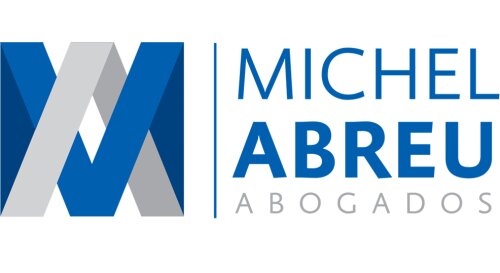Best Public-Private Partnerships (PPP) Lawyers in Punta Cana
Share your needs with us, get contacted by law firms.
Free. Takes 2 min.
List of the best lawyers in Punta Cana, Dominican Republic
About Public-Private Partnerships (PPP) Law in Punta Cana, Dominican Republic
Public-Private Partnerships, commonly known as PPPs, are collaborative agreements between government entities and private sector companies aimed at financing, constructing, and operating projects that serve the public interest. In Punta Cana, Dominican Republic, PPP models have gained prominence in recent years as a preferred mechanism to stimulate economic growth, improve infrastructure, and deliver essential public services such as roads, airports, and utilities. The Dominican government has established a legal framework to encourage private investment in public projects, hoping to leverage the expertise and efficiency of private entities while maintaining public oversight and benefits. PPPs in Punta Cana are governed by national legislation, tailored regulations, and local administrative guidelines designed to ensure transparency, competitiveness, and fair risk-sharing between parties.
Why You May Need a Lawyer
Engaging in a Public-Private Partnership involves complex legal, financial, and regulatory considerations. Whether you are a private investor, business owner, contractor, or government representative, navigating PPPs without legal support can be risky. Common situations where legal advice is indispensable include:
- Preparing or reviewing PPP agreements and contracts
- Conducting due diligence on local regulations, land use, and licensing
- Negotiating risk allocation, financial responsibilities, and operational roles
- Ensuring compliance with environmental, labor, and procurement laws
- Resolving disputes between partners or with third-party stakeholders
- Addressing land acquisition and expropriation issues
- Securing project permits and meeting governmental approval requirements
- Structuring project financing in compliance with Dominican banking and tax laws
A lawyer helps safeguard your interests, reduces risks, and ensures that your PPP project is viable and legally sound.
Local Laws Overview
In the Dominican Republic, Public-Private Partnerships are primarily regulated by Law No. 47-20 enacted in 2020, which establishes the legal framework for PPP projects. This law is supplemented by several regulations, presidential decrees, and guidelines issued by relevant authorities. Key aspects of local PPP laws in Punta Cana include:
- Definition of eligible PPP projects and sectors (infrastructure, public services, tourism-related developments)
- Mandatory public bidding and transparent selection processes for private partners
- Specific criteria for project selection, feasibility analysis, and value for money assessments
- Creation of the General Directorate of Public-Private Partnerships, which oversees project approval and monitoring
- Risk-sharing and dispute resolution procedures
- Provisions related to land rights, expropriation, and compensation
- Environmental and community impact assessments as prerequisites for project approval
- Clear guidelines for contract duration, renewal, and early termination
Local regulations also require ongoing project monitoring and compliance reporting to ensure that PPPs meet specified objectives and community standards.
Frequently Asked Questions
What is considered a Public-Private Partnership in Punta Cana?
A PPP is a formal collaboration between a government body and a private partner to develop, finance, operate, or maintain public infrastructure or services. This can range from transportation projects to utilities and tourism-related facilities.
Is there a specific law that regulates PPPs in the Dominican Republic?
Yes, Law No. 47-20 governs the overall framework for PPPs across the country, including Punta Cana. This law details the processes, requirements, and authorities involved in PPP projects.
Who approves PPP projects in Punta Cana?
The General Directorate of Public-Private Partnerships reviews and approves PPP projects, ensuring compliance with national regulations, feasibility, and alignment with strategic priorities.
Can foreign investors participate in PPP projects in Punta Cana?
Yes, both local and foreign investors are eligible as private sector partners in PPP projects, provided they meet all legal and regulatory requirements.
What sectors are open to PPP arrangements?
Sectors commonly open to PPPs include transportation infrastructure, water and sanitation, energy, health, education, tourism, and technology services.
How are disputes in PPP projects resolved?
PPP contracts generally specify dispute resolution mechanisms such as negotiation, mediation, or arbitration, often involving both local and international arbitral bodies.
Is public bidding mandatory for PPP projects?
Yes, Dominican law requires a transparent public bidding process for selecting private partners, ensuring fairness and equal opportunity.
Are there tax incentives for PPP projects?
Certain PPP projects may qualify for tax incentives or exemptions based on sector, project scope, and compliance with relevant laws. A lawyer can advise on eligibility.
How long is a typical PPP contract in Punta Cana?
Contract duration depends on the nature and scope of the project, but most PPP contracts last 10-30 years, with provisions for renewal or early termination as detailed in the agreement.
What kind of legal documentation is required for a PPP?
Typical documents include detailed project proposals, feasibility studies, environmental assessments, public bidding records, partnership agreements, permits, and compliance reports.
Additional Resources
For those seeking more information or assistance with PPPs in Punta Cana, the following resources are valuable:
- General Directorate of Public-Private Partnerships (Dirección General de Alianzas Público-Privadas)
- Ministry of the Presidency (Ministerio de la Presidencia)
- Dominican Republic Export and Investment Center (Centro de Exportación e Inversión de la República Dominicana - CEI-RD)
- National Council of Competitiveness
- Chamber of Commerce and Production of La Altagracia (Punta Cana/Bávaro region)
- Local law firms with experience in PPP projects
Next Steps
If you are considering involvement in a Public-Private Partnership in Punta Cana, or are already engaged and require guidance, follow these steps:
- Define your interest and objectives related to the PPP project.
- Gather all relevant project documentation and background information.
- Consult with a lawyer experienced in PPP and Dominican business law to review your plans and identify legal requirements or risks.
- Coordinate with relevant government agencies, ensuring all permits and approvals are on track.
- Maintain transparent communication with all stakeholders throughout the development process.
- Continue to monitor compliance with legal, financial, and contractual obligations during the life of the project.
Legal advice is a vital asset in this process. A specialized PPP lawyer will help you secure lawful, profitable, and sustainable collaboration with the public sector in Punta Cana.
Lawzana helps you find the best lawyers and law firms in Punta Cana through a curated and pre-screened list of qualified legal professionals. Our platform offers rankings and detailed profiles of attorneys and law firms, allowing you to compare based on practice areas, including Public-Private Partnerships (PPP), experience, and client feedback.
Each profile includes a description of the firm's areas of practice, client reviews, team members and partners, year of establishment, spoken languages, office locations, contact information, social media presence, and any published articles or resources. Most firms on our platform speak English and are experienced in both local and international legal matters.
Get a quote from top-rated law firms in Punta Cana, Dominican Republic — quickly, securely, and without unnecessary hassle.
Disclaimer:
The information provided on this page is for general informational purposes only and does not constitute legal advice. While we strive to ensure the accuracy and relevance of the content, legal information may change over time, and interpretations of the law can vary. You should always consult with a qualified legal professional for advice specific to your situation.
We disclaim all liability for actions taken or not taken based on the content of this page. If you believe any information is incorrect or outdated, please contact us, and we will review and update it where appropriate.










